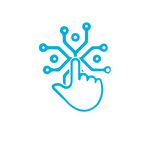An LMS is a product used to manage, document, track, report, and deliver training. Yet, what is LMS integration? Learning management system integration covers the possibilities of connecting an LMS solution with any other system to allow for seamless transfer of data and improved functionality.
As learning versatility accelerates amidst remote, AI and personalization waves, integrated LMS is becoming pivotal even for regulated contexts like LMS financial services compliance training or multi-location programs like restaurant training software.
Integrating systems expands capabilities, automates manual processes, and provides a unified learning experience. Some common examples of LMS integrations include single sign-on, content authoring tools, video conferencing platforms, and CRM systems.
What Is An LMS Integration?
An LMS integrated setup connects the LMS software with complementary systems using APIs. This allows for seamless data sharing between platforms, eliminating duplicative data entry.
Some examples of common LMS integrations include:
- User authentication systems for single sign-on across platforms
- Content authoring tools to easily import courses created externally
- Learning content libraries to access ready-made training materials
- Video conferencing and virtual classroom software
- Talent management systems for unified profiles and succession planning
- CRM tools to track prospect/customer training history
The purpose is to connect the systems in a way that makes it possible to develop and offer a unified experience and access richer data insights.
The Technical Aspects Of Integrations
On the technical side, setting up LMS integration requires:
LMS integration checklist:
- API access for data transmission between systems
- Support for common protocols like LTI, SCORM, xAPI
- Dedicated integration platforms and trained staff
- Setting up custom fields, metadata standards
- Authentication protocols and access permissions
- Extensive testing and checks before going live
Robust API support and adhesion to e-learning technical standards like SCORM and xAPI are vital for smoothly integrated learning management system setups.
It also requires significant technical coordination to establish specific data exchange requirements, authentication protocols, customizations, and rigorous testing.
Benefits Of LMS Integrations
There are several impactful usefulness of LMS integration for enhancing administration efficiency, experiences and data-driven decisions:
1. Reduces Admin Work
Integrations eliminate repetitive manual work needed when switching between systems. Single sign-on allows automatic user provisioning and signing in without re-authenticating.
HRMS integration automatically updates learner profiles. Automated data exchange removes duplicate data entries between LMS and other platforms.
LMS integration template flows significantly cut down admin workloads.
2. More Interactive and Contextual Experiences
Leveraging specialized tools through LMS integrations enhances learning engagement. Sales reps can access related training content stored in CRM when meeting customers.
Integrated LMS setups merge different systems like virtual classrooms, simulations, and e-learning content under one platform for contextualized experiences, improving retention.
3. Enhanced Data Capture And Learner Analytics
Integrations provide consolidated data from all connected systems to generate enhanced reports and analytics. It captures detailed activity records across tools to understand learner behavior better through LMS examples of data-driven insights not otherwise possible.
4. Better Training Evaluation
Post-training performance data captured through LMS-HCM integration provides tangible assessments. Documenting win rates in CRM after-sales training completion evaluates program effectiveness more accurately than just LMS course completion rates. Integrated learning management system analytics offers superior training evaluation compared to the traditional methods.
5. Efficient Admin Tasks Through Integration
Single integrated dashboards for assigning courses, tracking progress, certification, and notifications between LMS-HCM or ATS cuts down tremendous admin efforts.
Automated user provisioning also provides efficiency for training managers. Workflows related to coordinating instructors and resources also see improved hand-over through integration.
5 Best LMS Integrations To Evolve Your Learning Experiences
Now, let’s take a look at some highly useful LMS integrations for enhanced functionality:
1. Single Sign-on (SSO) Integrations
SSO allows users access across integrated platforms without re-entering credentials through secure identity management services. This delivers convenient experiences, reducing drop-offs. It also facilitates user provisioning and access management, improving training efficiencies.
2. Content Authoring Integrations
Authoring tools like Articulate Storyline used by instructors integrate seamlessly with LMS catalogs through standards like SCORM. These empower non-technical course creators to upload interactive multimedia content quickly, improving internal content creation and launch times.
3. Content Libraries Integrations
Plug into existing content catalogs like Skillsoft when required for ready-to-deliver courses on leadership, software, and compliance-saving efforts.Leverage aggregate content with multi-vendor support and taxonomies when your internal repositories fall short in specific topics.
4. Video and Webinar Conferencing
Integrations with web conferencing apps like Zoom, GoToWebinar, and Microsoft Teams enable collaborative experiences like virtual classrooms and blended programs complementing LMS functionality. Built-in integration smoothens scheduling, launching, and follow-ups of blended programs with unified dashboards.
5. CRM Integrations
CRM integration captures fields like deal stages and customer profiles within LMS to contextualize sales rep learnings suiting their key accounts and vertical focus areas through LMS examples. Post-training performance data on win rates feeds back into CRM for tangible ROI evaluation.
Final words
HCM integrations also unlock extensive capabilities around personalized recommendations based on employee profiles, competencies, and career trajectories to advance strategic priorities.
With specialized use cases across industries, choosing the most relevant LMS integrations entails strategic evaluation of business objectives, target personas, pain points and desired outcomes.
Beyond default offerings, today’s LMS integration ecosystems allow extensive custom app developments facilitating specialized data exchange.

